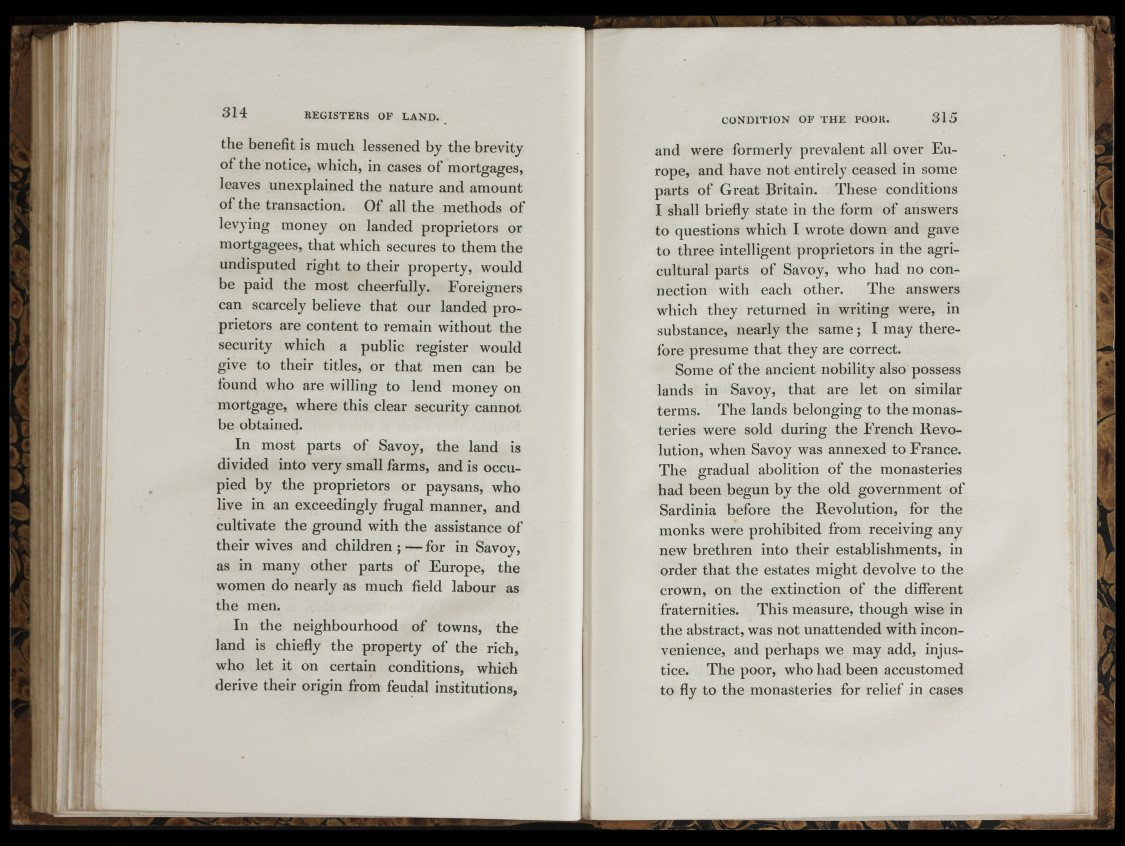
1
i f
I I'm I
iniifl^''
1 HI
,T ■' (
I;if '
US !
i
R E G I S T E R S OF L A N D .
the benefit is much lessened by the brevity
of the notice, which, in cases of mortgages,
leaves unexplained the nature and amount
of the transaction. Of all the methods of
levying money on landed proprietors or
mortgagees, that which secures to them the
undisputed right to their property, would
be paid the most cheerfully. Foreigners
can scarcely believe that our landed proprietors
are content to remain without the
security which a public register would
give to their titles, or that men can be
found who are willing to lend money on
mortgage, where this clear security cannot
be obtained.
In most parts of Savoy, the land is
divided into very small farms, and is occupied
by the proprietors or paysans, who
live in an exceedingly frugal manner, and
cultivate the ground with the assistance of
their wives and children ; — for in Savoy,
as in many other parts of Europe, the
women do nearly as much field labour as
the men.
In the neighbourhood of towns, the
land is chiefly the property of the rich,
who let it on certain conditions, which
derive their origin from feudal institutions,
and were formerly prevalent all over Europe,
and have not entirely ceased in some
parts of Great Britain. These conditions
I shall briefly state in the form of answers
to questions which I wrote down and gave
to three intelligent proprietors in the agricultural
parts of Savoy, who had no connection
with each other. The answers
which they returned in writing were, in
substance, nearly the same; I may therefore
presume that they are correct.
Some o fth e ancient nobility also possess
lands in Savoy, that are let on similar
terms. The lands belonging to the monasteries
were sold during the French Bevo-
lution, when Savoy was annexed to France.
The gradual abolition of the monasteries
had been begun by the old government of
Sardinia before the Be volution, for the
monks were prohibited from receiving any
new brethren into their establishments, in
order that the estates might devolve to the
crown, on the extinction of the different
fraternities. This measure, though wise in
the abstract, was not unattended with inconvenience,
and perhaps we may add, injustice.
The poor, who had been accustomed
to fly to the monasteries for relief in cases
rf I